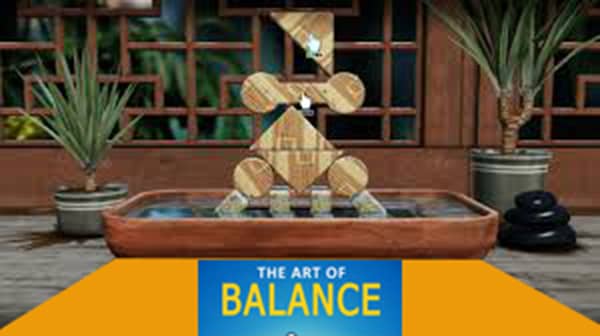Popular Blog BD / Abdur Rahman
“Achieving balance involves recognizing the interconnectedness of work, health, and happiness. Set clear priorities and goals, and create a flexible routine to manage your time effectively. Prioritize physical and mental health through regular exercise, a balanced diet, and mindfulness practices. Pursue passions and hobbies, and nurture relationships for emotional well-being. Continual learning and maintaining a positive mindset are crucial. Regular reflection and adjustments help sustain balance and alignment with your evolving life”
What is the art of Balance?
The art of balance is the practice of harmoniously integrating work, health, and happiness by setting clear priorities, creating a flexible routine, maintaining physical and mental well-being, pursuing passions, nurturing relationships, and continuously reflecting and adjusting to life’s changes.
In today’s fast-paced world, achieving a balance between work, health, and happiness can seem like an elusive goal. Many of us find ourselves constantly juggling professional responsibilities, personal well-being, and the pursuit of joy. However, it is possible to create a harmonious life that embraces all three aspects. The art of balance requires intentionality, discipline, and a deep understanding of what truly matters. Here’s a guide to navigating this intricate dance.
Understanding the Interconnectedness
First and foremost, it’s essential to recognize that work, health, and happiness are not isolated silos but are deeply interconnected. Poor health can affect work performance and diminish happiness. Conversely, a fulfilling job can boost mental health and overall well-being. Realizing this interconnectedness is the first step toward achieving balance.
Setting Priorities and Goals
To achieve balance, start by setting clear priorities and goals. Identify what is most important to you in each area of your life. This might include career aspirations, health goals, and personal happiness. Write these down and revisit them regularly. Prioritizing your goals will help you make informed decisions about how to allocate your time and energy.
Creating a Structured Routine
A well-structured routine can be a powerful tool for balancing work, health, and happiness. Begin by mapping out your daily, weekly, and monthly schedules. Ensure that there is time allocated for work, exercise, relaxation, and activities that bring you joy. A routine provides a framework that can help you stay on track and avoid the chaos that often comes with a lack of planning.
Embracing Flexibility
While a routine is important, it’s equally crucial to embrace flexibility. Life is unpredictable, and rigid schedules can lead to stress and frustration when things don’t go as planned. Allow yourself some leeway to adjust your plans as needed. Flexibility helps you adapt to changes without losing sight of your overall goals.
Work-Life Integration
The concept of work-life balance has evolved into work-life integration. This approach acknowledges that work and personal life are not mutually exclusive but can coexist harmoniously. Find ways to integrate your professional and personal activities. For example, if you enjoy reading, consider reading professional development books that interest you. If you love socializing, network with colleagues outside of work. This integration can make it easier to maintain balance without feeling like you are constantly switching between two different worlds.
Prioritizing Health
Health should be a non-negotiable priority. Physical health lays the foundation for a productive and happy life. Incorporate regular exercise into your routine, aiming for a mix of cardiovascular, strength, and flexibility training. Nutrition is equally important; focus on a balanced diet rich in whole foods, and stay hydrated. Mental health is another crucial component. Practices such as meditation, mindfulness, and adequate sleep can significantly improve your mental well-being.
Mindfulness and Stress Management
Mindfulness involves being present and fully engaged in the moment. It can help you manage stress and increase your overall sense of well-being. Techniques such as deep breathing, meditation, and mindful walking can be easily incorporated into your day. Stress management is vital; identify your stressors and develop strategies to cope with them. This might include delegating tasks, setting boundaries, or seeking professional help when needed.
Pursuing Passions and Hobbies
Happiness often stems from pursuing passions and hobbies outside of work. Make time for activities that you love, whether it’s painting, hiking, cooking, or playing an instrument. Engaging in these activities can provide a much-needed break from work and rejuvenate your spirit.
Building and Nurturing Relationships
Human connections are a cornerstone of happiness. Invest time in building and nurturing relationships with family, friends, and colleagues. Social interactions can provide emotional support, reduce stress, and increase feelings of happiness and belonging. Make an effort to spend quality time with loved ones and cultivate a supportive social network.
Continual Learning and Growth
Personal and professional growth contributes to a fulfilling life. Commit to lifelong learning by seeking out new experiences, skills, and knowledge. This could involve taking courses, attending workshops, reading books, or engaging in meaningful conversations. Growth not only enhances your professional capabilities but also enriches your personal life.
Maintaining a Positive Mindset
A positive mindset can transform the way you navigate challenges. Practice gratitude by regularly reflecting on the things you are thankful for. Focus on solutions rather than problems and view setbacks as opportunities for growth. Surround yourself with positive influences and engage in activities that uplift your spirit.
Seeking Professional Help
There may be times when balancing work, health, and happiness becomes overwhelming. Don’t hesitate to seek professional help. Therapists, coaches, and mentors can provide valuable guidance and support. Seeking help is a sign of strength, not weakness, and can significantly enhance your ability to manage various aspects of your life.
Regular Reflection and Adjustment
Finally, regular reflection is key to maintaining balance. Periodically assess your progress towards your goals and make adjustments as needed. Reflect on what is working well and what needs improvement. This continuous process of reflection and adjustment ensures that you remain aligned with your priorities and can make necessary changes to stay balanced.

